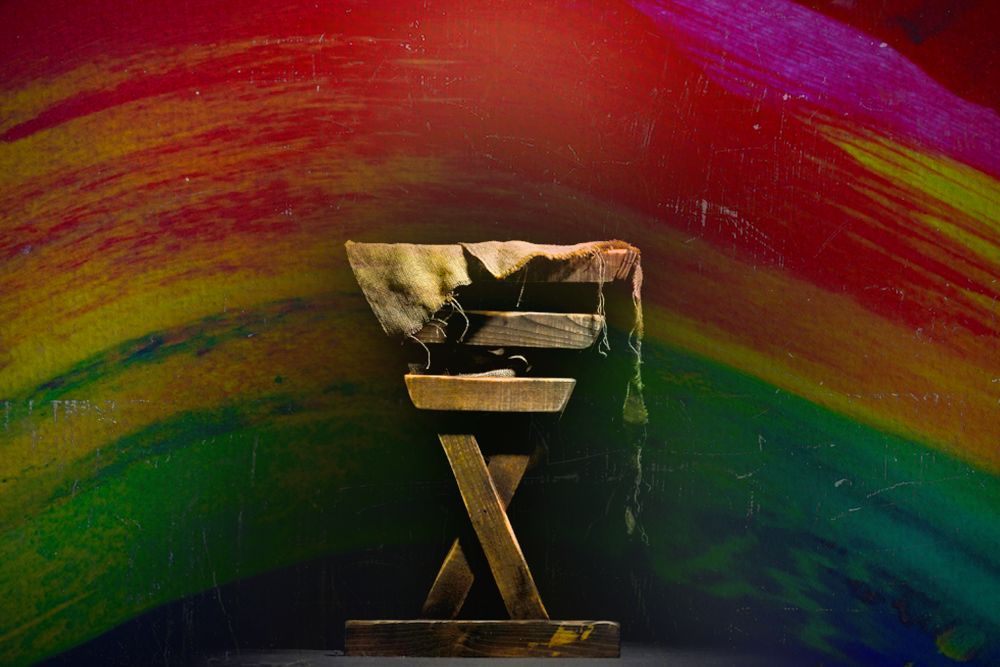
(Maxwell Kuzma)
Growing up as a young LGBTQ person of faith in the Catholic Church, I was familiar with two things: uncertainty and waiting. In my parish youth group, I watched other kids pray and wrestle with discernment about relationships and vocation, and always felt like the odd one out. I didn’t feel I could speak up about my sexuality — not because I was doing anything sexual, but because my life didn’t fit the narrative of a heterosexual teenager. The fullness of my identity could not be discussed with the people I was supposed to be able to confide in on my faith journey. It was frustrating.
I also spent a lot of time waiting to feel right in my own body. An older family friend had assured me that everyone feels awkward and uncomfortable as a teen, and that I too would grow out of it. I didn’t think I would, but I was waiting to see if she was right. Waiting to see if she could be right.
My faith journey was going through similar growing pains. I participated in music ministry and that experience gave me a front row seat to the beauty of the Mass and the power of the Eucharist. Seated in the choir loft, I felt connected to the congregation as they received the sacrament. But outside Mass, I felt a growing chasm between myself and other Catholics.
My life was full of beautiful experiences and important relationships, yet I avoided mirrors because they reflected back a performance, not a person. I was quiet around strangers because my voice sounded too high-pitched and wrong to my own ears. I tried to choose oversized clothes that would ease my discomfort, but they never made me feel invisible enough. I maintained only superficial friendships, because I didn’t want to share the true nature of my inner life.
The way that I finally learned to love myself was unexpected — just as unexpected as the king of the universe arriving in a messy, dirty stable.
I heard puberty described as a beautiful and messy natural transformation that would involve awkward moments and feelings, but would ultimately end in a kind of inner peace and harmony — an "aha" moment where everything clicked into place. But as my body changed, it became increasingly foreign to me as time went on. I struggled to make meaning out of the discomfort of my daily life. It was hard for me to connect with other Catholics who didn't seem to share the uneasy relationship I had between body and spirit.
Working in the Catholic nonprofit world in video production became my identity. I lived to make an impact: from big projects with known influencers to hyperlocal content that would help me make a name for myself and elevate smaller organizations. I made an idol of work and, in the process, burnt myself out. I was also waiting for God to make everything work out: Could people love and accept me for who I was? Could I? I lay awake at night with a feeling of emptiness. I thought working on Catholic projects would give me the sense of meaning I needed.
That never happened. Instead, I slowed down; I took a step back and some time off. I looked around and realized that I had become obsessed with my career to the exclusion of all else. What did I genuinely care about? What were my interests and hobbies that were not monetizable, not prestigious or impressive? Where was God in this? Everything I was doing in my daily life was designed to help me advance in my career, but that left nothing that was for my inner life.
Advertisement
Time passed, and I began to heal. I allowed myself to consider the frightening questions of sexual and gender identity. I met elders in the LGBTQ community — many were people of faith — who in their quiet and steadfast way showed me what it was like to hold apparent contradictions. My prayer life changed. Seeing LGBTQ people of faith being true to both themselves and God, I realized there might be a path forward for me. This type of embodiment was unlike anything I had allowed myself to consider.
As I wrapped my head around this possibility, I felt God close to me in a way I never had before. It wasn't a huge billboard; it wasn't a performative gesture; it was a new intimacy with myself that allowed me to understand the Scripture "love your neighbor as you love yourself" for the first time because I was finally able to love the parts of myself that weren't cisgender or heterosexual. The way that I finally learned to love myself was unexpected — just as unexpected as the king of the universe arriving in a messy, dirty stable. There wasn't an easy answer, and the loose ends weren't instantly tied up, but the world slowly got brighter. Life started to get easier.
The more I chose to live as my most authentic self, the more I found I was actually present for the beautiful moments of my life, both the grand and the mundane. And in noticing that connection, I began to understand that during those painful times when God felt so distant, he was actually there the entire time, waiting for me to recognize the love he had poured out on me, waiting for me to receive that love in my body as well as my soul.






